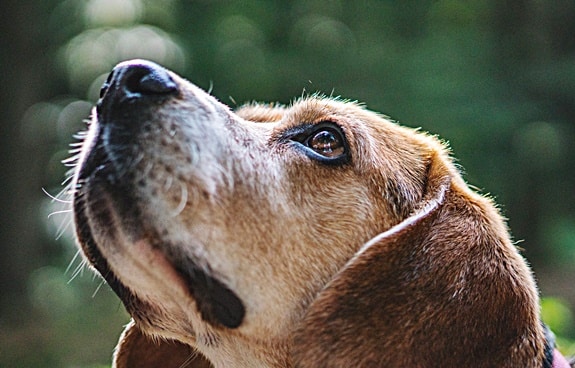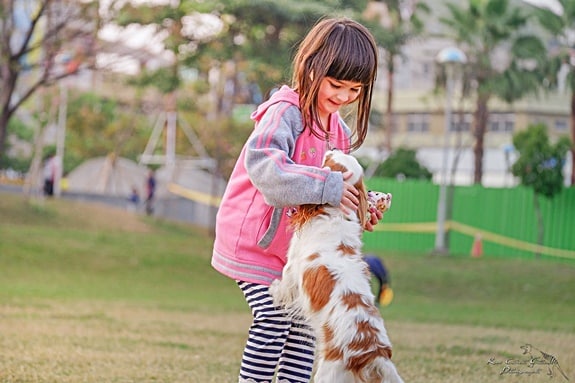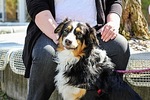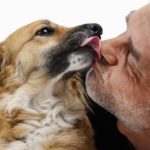Dogs can go through many changes as they age. These alterations can occur with respect to their health, energy levels, and appearance. Weight loss in older dogs isn’t uncommon, but that doesn’t mean that it’s normal. In fact, if you have a senior dog that is losing weight and can’t seem to keep any weight on, it could have several medical explanations.
An old dog losing weight and muscle mass might not seem like a big deal at first. Weight loss in your senior dog might be something slow and gradual that you start to notice over time. For other dogs, it can happen suddenly. Either of these issues can be cause for concern. So, it’s vital to know the different reasons why your older dog might be experiencing weight loss.
It doesn’t always mean there is a medical issue. If you think, ‘my dog is losing weight but acting normal,’ it could be a minor problem. This is especially true if it’s a slow weight loss over time. A drastic sudden drop in weight is more likely to suggest there is a health concern. If your dog is losing weight fast, it’s likely to be something more serious.
Whatever the case, though, it should never be ignored. If you’re around your dog every day, you know better than anyone else what to look for in their appearance. You’ll probably notice that they’re losing weight before anyone else. If it is a medical condition, the earlier it’s ‘caught,’ the better the chances of getting it treated.
Table of Contents:
- Why is My Older Dog Losing Weight?
Why is My Older Dog Losing Weight?
This guide will focus on several common reasons why some senior dogs get skinny. Some of these explanations are more serious than others. But, it’s vital to know as many possibilities as you can so you know what to do if you notice a difference in your dog’s weight.
Once you know some of the common causes of weight loss, you’ll be better prepared to tackle any problems that might come up. We’ll also cover what you can do to help your aging dog to put on weight again and get their strength and energy back.
What is Considered ‘Significant’ Weight Loss in Older Dogs?
If your dog loses a couple pounds, you probably won’t notice. Some dogs also have more hair than others, which can make it difficult to see a change in their weight right away. So, how can you determine what a significant weight loss is in an older dog?
It’s important to know this because a significant drop in weight should be reason enough to see your veterinarian. This doesn’t always mean your dog has a serious medical condition. But, losing a lot of weight is something that shouldn’t be ignored.
With that in mind, weight loss in a dog is considered significant when the dog has lost 10% or more of their normal body weight. It should be something you notice just by looking at them. But, if you’re not sure how much weight they’ve actually lost and you’re concerned, you can weigh them at home. Or, take them to the vet to be weighed as a precautionary measure. Then, if something is wrong, your vet can start to take care of it right away.
If your senior dog has lost a significant amount of weight, don’t panic. Your dog may have a condition that can be treated easily. Or, they could just be losing weight because of old age. Your vet will be able to give you more answers. In the interim, you might want to make life easier for him or her with a pet carrier for older dogs.
What Does it Mean When an Older Dog Loses Weight Slowly?
If you’ve noticed that your dog looks thinner, but the weight loss has been slow, don’t worry. There are reasons senior dogs lose weight that aren’t a cause for serious concern.
Some of the most common reasons for weight loss in older dogs include:
- Lack of appetite – Some dogs have a reduced appetite as they age. You may notice your older dog not eating as much from their bowl or grazing throughout the day instead of eating all their food at once.
- Loss of muscle – What looks like weight loss in a dog could actually be a loss of muscle mass. This happens in elderly people as well as dogs and is typically nothing to worry about.
- Poor digestion of food – Older dogs can have several digestive issues. Some are more serious than others. But, poor absorption of food may just mean they need to go on a different diet or try a special formula.
It’s still not a bad idea to take your dog to the vet, even if you notice that they’re losing weight gradually. Many times, one of the causes above will be the culprit. But, your vet can at least give you peace of mind and some advice on what you can do to keep your older dog healthy as long as possible.
If your dog has lost at least 10% of its body weight and you’re worried it might be a health issue, there are other symptoms you can look for. It’s rare that weight loss is the only sign of a medical condition. Some other symptoms may be discrete. But, you know your dog better than anyone. You’ll likely notice different symptoms once you know what you should be looking for.
Different symptoms are associated with various conditions. The next few sections will cover some of the most common conditions that cause weight loss in older dogs. We’ll talk about those extra symptoms for each of these problems. That way, you know what to look for and can give a better explanation to your vet.

Dehydration
Dehydration can be a problem for dogs of any age. But, it can have an even more significant impact on older dogs who may naturally have a weakened immune system. If your dog has already started to lose weight, it can be even easier for them to get dehydrated quickly.
As dogs get older, they can naturally lose fluids more easily. A bit of weight loss can be caused by this loss of fluid. But, dehydration is also a risk. It’s so important to make sure your dog is getting enough water and other fluids throughout the day.
Some common symptoms also associated with dehydration include:
- Dry mouth
- ‘Rubbery’ gums
- Dark or concentrated urine
- Fatigue/lethargy
- Infrequent urination
There are ways to treat dehydration in your older dog. Obviously, the best thing you can do is to always make sure they have plenty of water to drink. But, there are other ways to increase their fluid intake. Some of the most popular methods are adding a bit of chicken or beef stock to their food.
Or, serve them a can of wet dog food once a day in place of one of their dry meals. You can also mix it with their dry kibble. Canned dog food has two benefits for senior dogs. First, it contains a lot more water than dry kibble, which can help to hydrate your dog. It also has a stronger smell and taste. If your dog hasn’t been eating or drinking as much, the alluring smell might help to bring back their appetite.
In some cases, certain health conditions or diseases can also cause dehydration. It’s still important to get your dog checked out by a vet if you notice these symptoms along with weight loss.
Oral Problems
When your teeth, gums, or tongue hurt, you don’t want to eat much. Eating can become a painful thing. The same goes for your dog when they face those issues. As they start to eat less because of the discomfort, they will undoubtedly lose weight.
Oral health problems can become more common. Gingivitis, gum diseases, or even broken teeth can occur. Some dogs can also develop infections or tumors in their mouths, so it’s essential to get an official diagnosis and treatment. Your dog will have a hard time eating until their mouth starts to feel better. That’s why it’s vital that you learn how to brush your dog’s teeth!
Thankfully, the symptoms associated with these problems are relatively easy to spot quickly.
Some of the most common ones include:
- Bad breath
- Visible difficulty eating kibble/dry food
- Excessive drooling
- Bleeding gums
Sometimes, something as simple as medication or a longer treatment plan can help with these issues. In more extreme cases, your dog may need oral surgery to fix the problem.

Heart Disease
There are more serious conditions and diseases that can affect senior dogs and cause rapid weight loss. One of those conditions is heart disease. Unfortunately, many pet owners mistake the signs of heart disease in elderly dogs as just signs of ‘getting old.’ It’s easy to think nothing is wrong until the symptoms become more severe, but the earlier you can catch this illness, the easier it will be to treat.
The most common symptoms to look out for include:
- Easily fatigued
- Excessive coughing
- Restlessness
- Panting
If you’re able to feel your dog’s heartbeat, another sign of problems is that it might be irregular. This is nothing to take lightly and you should take your dog to the vet as soon as possible. Some aggressive forms of heart disease can be fatal. Or, they can cause a lot of pain for your dog, and they may need to be put down.
But, if the condition is caught early on, many forms of the disease can be managed. Even a senior dog with heart disease can have many years left if it’s properly treated and cared for.
Diabetes
Diabetes isn’t uncommon in older dogs, and it can affect them in a similar way it does with people. It can cause weight loss because the body starts to convert stored fat into energy. This is due to the body not processing glucose correctly.
As the fat reserves start to get used up, your dog will lose weight. Even if your older dog is losing weight but eating, it can be cause for concern. It can be tough for a dog with diabetes to keep on weight.
Some more symptoms of diabetes in older dogs listed by the American Kennel Club are as follows:
- Constantly thirsty
- Frequent urination
- Excessive hunger
- Lethargic
Dogs with diabetes may also have recurrent urinary tract issues and infections. Type 2 diabetes in dogs can usually be controlled with changes to the diet as well as oral medication. Type 1 diabetes usually needs to be treated with insulin. In most cases, if the condition is managed well your dog can continue to live a happy, healthy life.
Cancer
Cancer is perhaps one of the most severe conditions an older dog can face. Unfortunately, there are so many different types of cancer, just as there is with humans. This can sometimes make it difficult to see symptoms until they become incredibly severe.
Cancer’s symptoms can be a bit all over the place, depending on what type of cancer is affecting your dog.
Some things to look for along with weight loss include:
- Decrease in appetite
- A difference in urination (more frequent or infrequent)
- Lethargy
- Limpness
- Lumps on the body
- Distended abdomen
It’s easy for cancer to grow and spread quickly. Again, it may have to spread heavily throughout the body before you notice some of these symptoms. But, you know your dog better than anyone else and are likely to be the best person to notice changes.
Just because your dog is experiencing one or two of these symptoms doesn’t automatically mean they have cancer. But, if you notice some of these, don’t wait to get them checked out by a vet.
The sooner any time of cancer is caught, the better. Some are more easily treated than others. But, to give your older dog the best chance, check for some of these symptoms periodically and take them to a vet as soon as you notice any abnormalities.

Kidney Disease
It’s not abnormal for certain organs of the body to start slowing down or working less efficiently as we age. That same idea is true for dogs, too. The kidneys can be a common problem when it comes to slowing down or not functioning correctly with age.
The big problem with kidney disease is it can happen slowly, but then feel as though it happens all at once. This is because it usually starts out as the kidneys not working as efficiently as they should. It can happen slowly and be so subtle that you may not even realize your dog is having a problem. That is until it becomes a full-blown kidney infection.
Unfortunately, by that time the disease is usually advanced and can be harder to treat or recover from.
According to Blue Cross for Pets, the signs of kidney failure include:
- Excessive thirst and urination
- Diarrhea
- Lethargy
- Pale/white gums
- Loss of appetite
This is another condition where early detection is key. As we said, though, it can be a hard disease to ‘track’ right away. That’s why it’s so important to pay close attention to any changes in your senior pet. You can never be too careful, and you should never feel bad about taking them to the vet for even minor symptoms.
Why is my old dog’s spine showing?
Although it can be scary when you suddenly realize you can see your dog’s spine, it isn’t something to worry about in itself – it’s likely just a result of your senior pooch’s general weight loss
How to help a senior dog gain weight
Some older dogs may gain weight with age, while others can lose some. A gradual weight loss isn’t usually a cause for concern. But, if your dog is losing weight suddenly and starts to look skinny, it’s important to take action as soon as possible.
To treat the weight loss itself, you have to treat the condition causing it in the first place. For minor conditions, oral medications or a management plan may be available. For other conditions, more aggressive treatment may be needed. Don’t start overfeeding your dog just because you think they’re getting too skinny. It won’t fix the underlying problem, and they could continue to get worse.
How Can I Keep Weight on My Senior Dog?
Once your senior dog is given a clean bill of health, you can focus on helping them gain weight. Or, you can help them to maintain a healthy weight and keep from losing more just because of old age. If your older dog starts to get too skinny as they lose muscle mass, they can become weaker. Keeping them at a healthy weight for as long as possible will help them to have more energy and strength.
There are a few dietary changes you can make for your senior dog to help them gain or maintain a healthy weight. If your dog is older but hasn’t shown signs of weight loss, you can keep them on their normal food regimen. It’s better for a dog to be lean than overweight but being too skinny can be problematic.
Keep these tips in mind to get your dog back to a healthy weight:
- Try a premium dog food: One of the best things you can do is to check out the ingredients and nutrition facts of the dog food you’re using. Premium foods tend to have more natural nutrients. Your dog can absorb more of these nutrients, which can, in turn, make sure their body is functioning as it should. Premium food can be a bit more expensive, but It’s a small price to pay for your aging fur baby!
- Avoid ‘senior’ formulas: Talk to your vet about the right food formula for your dog. But, many times senior formulas are designed to be low fat or low calorie. This ensures that your dog will stay lean and not struggle with being overweight on their aging joints. But, for an old dog who is already underweight, these formulas might not be the best idea.
- Make meals better: Some senior dogs start losing weight because their tastes change. They might have a lower sense of smell or taste. Their lack of exercise also might keep them feeling less hungry, which would cause them to eat less often. So, do what you can to make their meals more appealing. You can do this by doing things like adding a scoop of canned food to their kibble, soaking it in broth or adding some cooked scrambled egg. You should also try choosing kibble that has smaller pieces instead of large chunks.
- Supplements: If your dog has a poor digestive function, they can lose weight over time. Thankfully, there are supplements you can buy that are designed to improve the digestive function of older dogs. You can discuss with your vet what your best options are, but you can even buy these supplements online. They look and taste just like treats to your dog, so they’ll love taking their ‘medicine’ each day!
Is Weight Loss Dangerous in Older Dogs?
We hope this article has been informative if you have a senior dog that is losing weight. As you can see, there are many different possible causes for the problem. If you find that your dog has started to lose weight gradually, you probably don’t have too much to worry about. But, sudden weight loss may be cause for concern.
In any case, the best things you can do are to pay attention to additional symptoms that are going along with your dog’s weight loss. Even if they’re losing weight slowly, you should take a trip to the vet to give yourself peace of mind. Most conditions that are caught early enough in dogs can be treated easily. The longer you wait to start treating a disease or condition, the harder it can be to get rid of it.
A little weight loss is normal for some elderly dogs. But, you can do your part to make sure your best four-legged friend isn’t going through any serious medical conditions. Keep them on a diet plan that works for them once they’re healthy, and you might be able to enjoy many more years with your senior dog.













